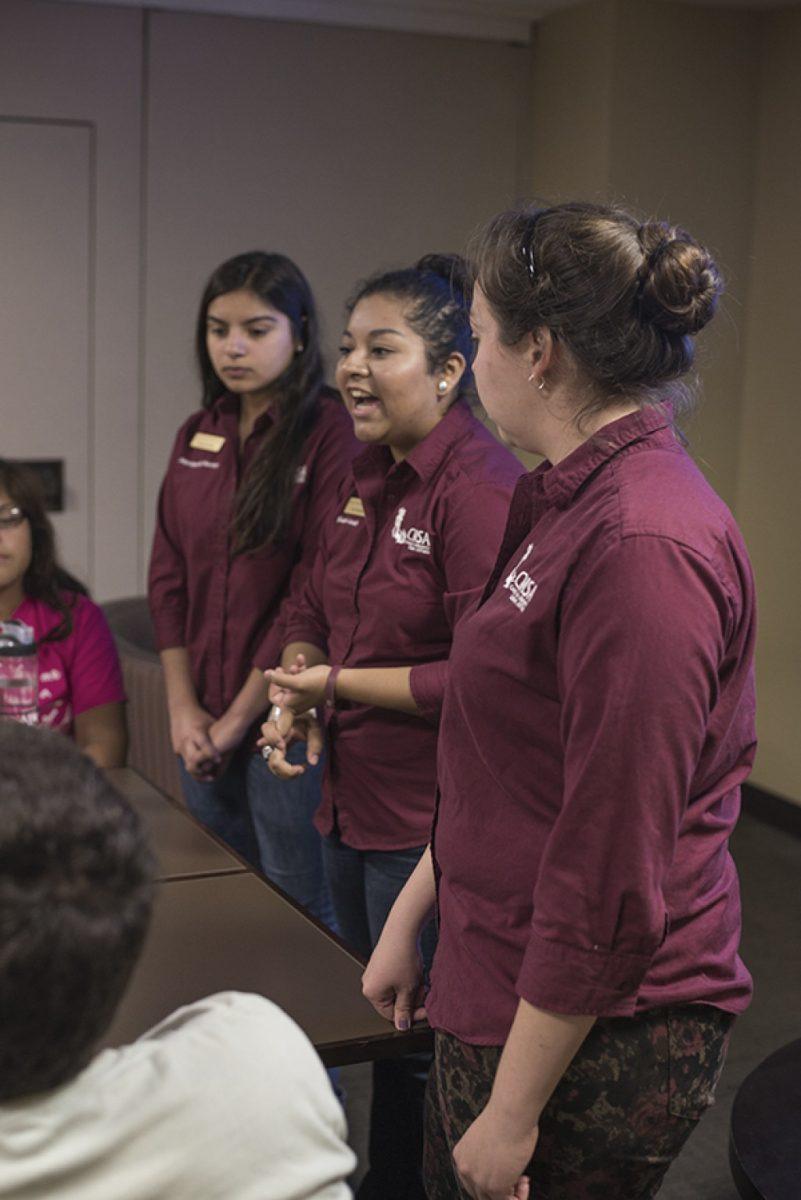Around four million immigrants now living in the U.S. illegally will be shielded from deportation as the result of executive orders announced Thursday evening by President Barack Obama.
Obama unveiled the orders in a televised address in what he called an effort to refocus deportation efforts to “felons, not families.”
“We are and always will be a nation of immigrants,” Obama said. “We were strangers once, too.”
Parents of citizens or permanent residents will be able to request deportation relief for three years at a time if they have been in the U.S. for more than five years, undergo a criminal background check, register and pay taxes, Obama said.
“This deal does not apply to anyone who has come to this country recently,” Obama said. “It does not apply to anyone that might come to America illegally in the future. It does not grant citizenship or the right to stay here permanently or offer the same benefits that citizens receive. Only Congress can do that.”
Huyen Pham, associate dean for faculty research and development at the A&M School of Law, said there are about 11.4 million people in the U.S. without authorization.
“Some of them cross the border illegally, but many of them are here, they come here on valid visa, and then they overstay,” Pham said.
Pham said the executive order does not give citizenship, which is outside Obama’s powers. Instead, Obama’s orders advocate against the government separating families by deporting parents of children who have citizenship by virtue of being born in the U.S.
“The way that I would frame what President Obama’s doing is he’s trying to standardize who are our deportation priorities,” Pham said. “He’s done this in other contexts. He has said, ‘What we really want to do is to focus on people with serious criminal charges, not people who are deportable because they violate immigration law, but people who have rape convictions or murder convictions — serious violent crimes.’”
Nery Guerrero, president of the Council for Minority Student Affairs and nutritional science senior, said the council provides resources and advocacy.
“We are, I think, the only organization on campus that provides information, events, specifically directed for the undocumented students in the community and here on campus,” Guerrero said. “We also provide information to the community. What we learn as an organization and from speakers who come to our meetings, we also take it to the high schools in Bryan-College Station to educate the high school students that may be undocumented.”
Felipe Hinojosa, assistant professor in the department of history, interacts with students from the council. He said he thought Obama made some important points in his speech.
“He tried to toe the line in terms of trying to follow through on promises that he made to Latino voters early but then also trying to reassure voters that might not be for this action that in fact he’s trying to set the record straight on what exactly this executive action means,” Hinojosa said.
Guerrero said she is glad that Obama took action, but she is also hesitant to celebrate just yet.
“We’re excited and nervous at the same time because we don’t know how many families he’s trying to reach, and we’re still waiting,” Guerrero said. “He said he’s going to take executive action toward immigration, but we don’t know how far he is willing to reach to protect the undocumented families.”
While students like Guerrero were hoping the executive order would focus on parents of Deferred Action for Childhood Arrivals, DACA, Pham said this doesn’t look like the case. Instead, the order focuses on families of U.S. citizens or lawful permanent residents.
“Basically it would be mixed status families,” Pham said. “If I came to the U.S. illegally, but I have a daughter here, she gets citizenship by birth, and then through this program I would get deportation deferral. That’s not the same thing as parents of DACA.”
Pham said there is some risk involved because, in two years, the next president could revoke the executive order.
“There’s definitely a risk,” Pham said. “If I’m in that position I have to calculate whether I want to register so that the government knows where I live and that I’m unauthorized. There is that risk because executive orders can be revoked, and there’s also going to be legal challenges.”
Hinojosa said although there is some disappointment among members of the Latino community, he thinks the order is a step in the right direction.
“Any step that he’s taken I think is a positive for immigrants and certainly for the Latino community in general,” Hinojosa said. “There’s still a large number of immigrants that are left out of it, but I think this was the right move.”
Going forward, Hinojosa said he hopes the order will encourage Congress to work to construct a bill on immigration reform.
“I’d like to see the Congress take some action,” Hinojosa said. “Rather than simply making veiled threats in terms of not letting the president do anything forward, from here, I think it’s in both parties best interest, especially with the Republican party, to step up and work with the president in terms of trying to bring about some immigration reform.”
Hinojosa said the effort by the president should not be taken out of context.
“At the end of the day, it doesn’t help anybody to put on this political theater in terms of trying to demonize this executive action or try to make it something that it’s not,” Hinojosa said. “It’s certainly not amnesty. It’s something that’s temporary, but I think this was a great gesture certainly by the president in terms of even setting up the debates that will take off in the upcoming presidential election in 2016.”
Obama shields millions from deportation with executive orders
November 20, 2014
The Council for Minority Student Affairs gathers to watch President Obama’s speech about his executive orders on immigration. Angie Martinez, Gabriela Castillo and Roxann Lerma discuss the implications of the executive orders with the council.
Allison Bradshaw — The Battalion
0
Donate to The Battalion
Your donation will support the student journalists of Texas A&M University - College Station. Your contribution will allow us to purchase equipment and cover our annual website hosting costs.
More to Discover









